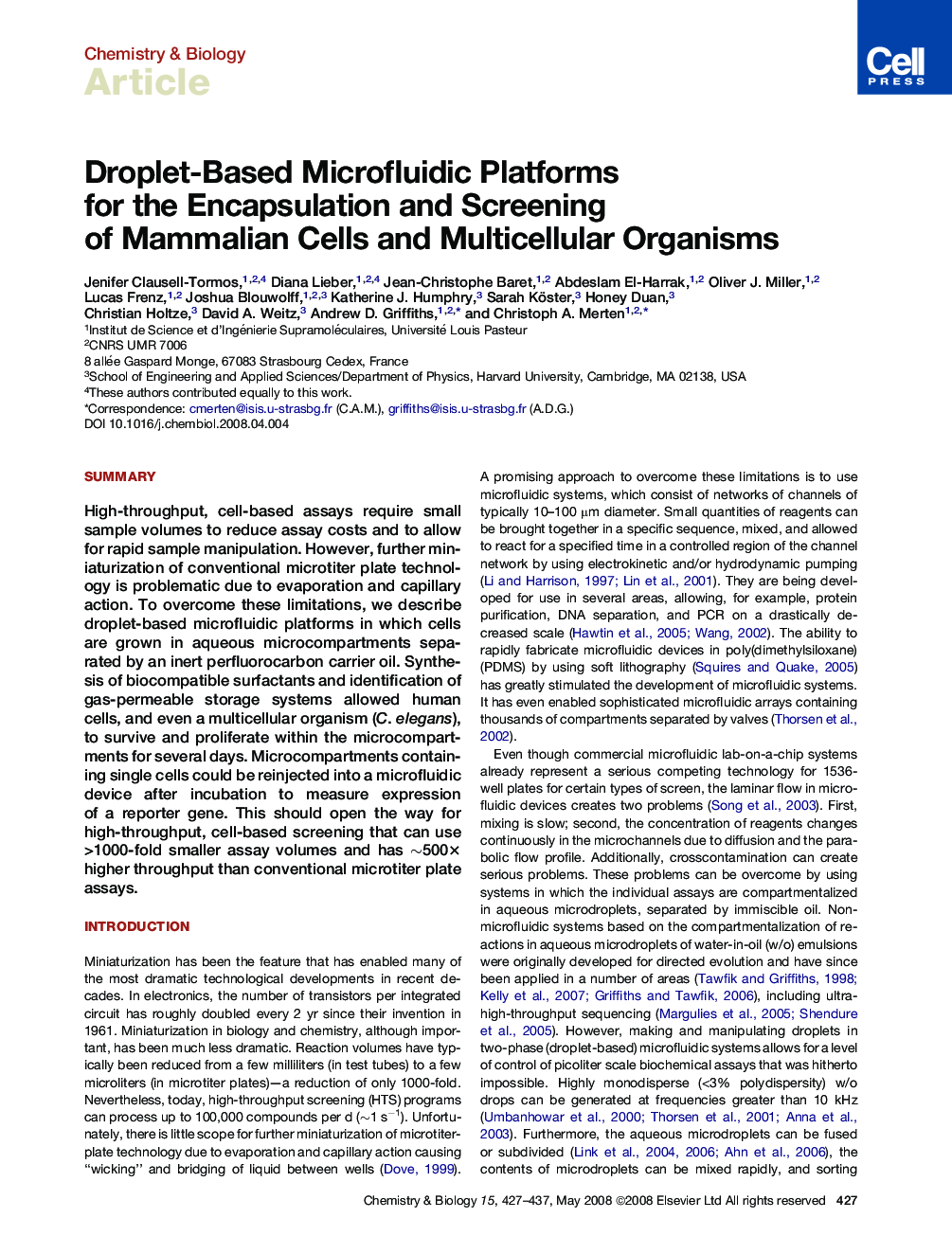| Article ID | Journal | Published Year | Pages | File Type |
|---|---|---|---|---|
| 1392767 | Chemistry & Biology | 2008 | 11 Pages |
SummaryHigh-throughput, cell-based assays require small sample volumes to reduce assay costs and to allow for rapid sample manipulation. However, further miniaturization of conventional microtiter plate technology is problematic due to evaporation and capillary action. To overcome these limitations, we describe droplet-based microfluidic platforms in which cells are grown in aqueous microcompartments separated by an inert perfluorocarbon carrier oil. Synthesis of biocompatible surfactants and identification of gas-permeable storage systems allowed human cells, and even a multicellular organism (C. elegans), to survive and proliferate within the microcompartments for several days. Microcompartments containing single cells could be reinjected into a microfluidic device after incubation to measure expression of a reporter gene. This should open the way for high-throughput, cell-based screening that can use >1000-fold smaller assay volumes and has ∼500× higher throughput than conventional microtiter plate assays.
